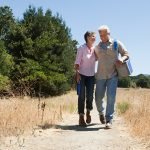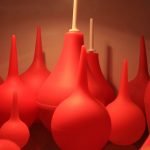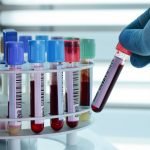Dopamine Levels Affect Chronic Inflammation, Which Decreases Motivation
Node Smith, ND
Motivation. It’s a common obstacle for many individuals striving to better their health. And a new research study suggests that chronic inflammation impacts dopaminergic signalling in the brain, thus impacting motivational drive.
Chronic inflammation impacts dopaminergic signalling in the brain
The study, released in the journal, Trends in Cognitive Sciences, links reduced dopamine release in the brain, with the presence of inflammation in the body, and suggests this may be a factor impacting motivation to do things. A further conclusion is that the decrease in dopamine may be the body’s effort to conserve energy use during times of crisis.
Foundational hypothesis is vitalistic in nature
The foundational hypothesis is vitalistic (which is to say, naturopathic) in nature – that the body needs more energy to heal from an infection, or wound, and adapts neural signalling in a way that ultimately decreases energy expenditure in other areas – i.e. by decreasing chemical signalling for motivation, rest is a more likely outcome, allowing the body to do the healing it needs to do.
Manner in which this adaptive response occurs is through the following disruption
According to the study, the manner in which this adaptive response occurs is through immune-mediated disruption of the dopamine pathway – thus reducing dopamine release.
The method researchers used to assess how inflammation affects the amount of viable energy
The method the researchers used to assess how inflammation affects the amount of energy available is a computational technique that could allow for further research into chronic inflammation and motivation in various specific diseases, such as depression.
If theory is correct, it could have a HUGE impact on treating depression
Andrew Miller, co-author of the study, says, “If our theory is correct, then it could have a tremendous impact on treating cases of depression and other behavioral disorders that may be driven by inflammation. It would open up opportunities for the development of therapies that target energy utilization by immune cells, which would be something completely new in our field.”
Source:
- Treadway M. T. et al., (2019). Can’t or Won’t? Immunometabolic Constraints on Dopaminergic Drive. Trends in Cognitive Sciences. https://doi.org/10.1016/j.tics.2019.03.003
 Node Smith, ND, is a naturopathic physician in Humboldt, Saskatchewan and associate editor and continuing education director for NDNR. His mission is serving relationships that support the process of transformation, and that ultimately lead to healthier people, businesses and communities. His primary therapeutic tools include counselling, homeopathy, diet and the use of cold water combined with exercise. Node considers health to be a reflection of the relationships a person or a business has with themselves, with God and with those around them. In order to cure disease and to heal, these relationships must be specifically considered. Node has worked intimately with many groups and organizations within the naturopathic profession, and helped found the non-profit, Association for Naturopathic Revitalization (ANR), which works to promote and facilitate experiential education in vitalism.
Node Smith, ND, is a naturopathic physician in Humboldt, Saskatchewan and associate editor and continuing education director for NDNR. His mission is serving relationships that support the process of transformation, and that ultimately lead to healthier people, businesses and communities. His primary therapeutic tools include counselling, homeopathy, diet and the use of cold water combined with exercise. Node considers health to be a reflection of the relationships a person or a business has with themselves, with God and with those around them. In order to cure disease and to heal, these relationships must be specifically considered. Node has worked intimately with many groups and organizations within the naturopathic profession, and helped found the non-profit, Association for Naturopathic Revitalization (ANR), which works to promote and facilitate experiential education in vitalism.
Node Smith graduated from the National University of Natural Medicine (NUNM) in 2017, and is currently licensed as a naturopathic physician in Oregon and working towards becoming licensed in Saskatchewan, Canada as well.










